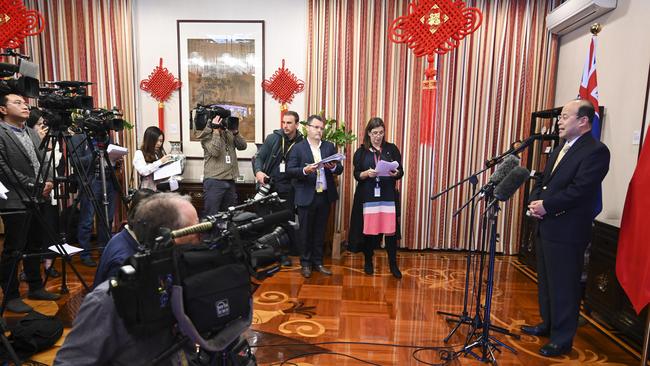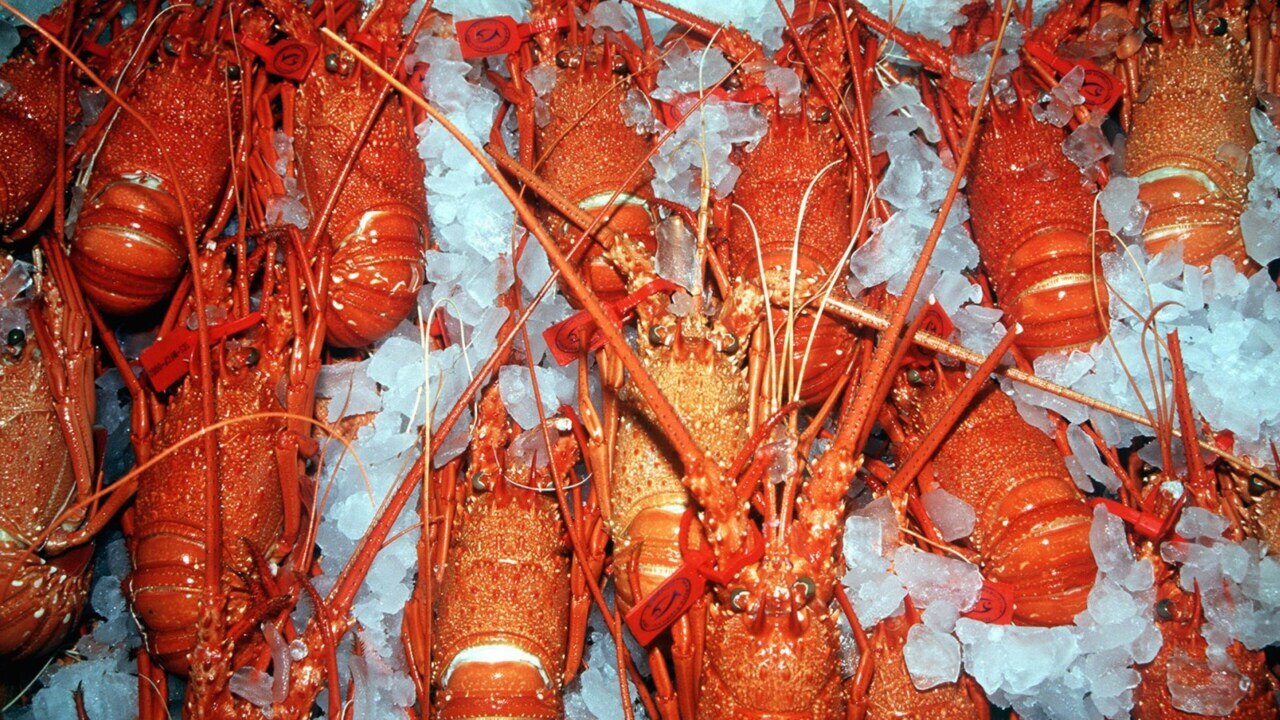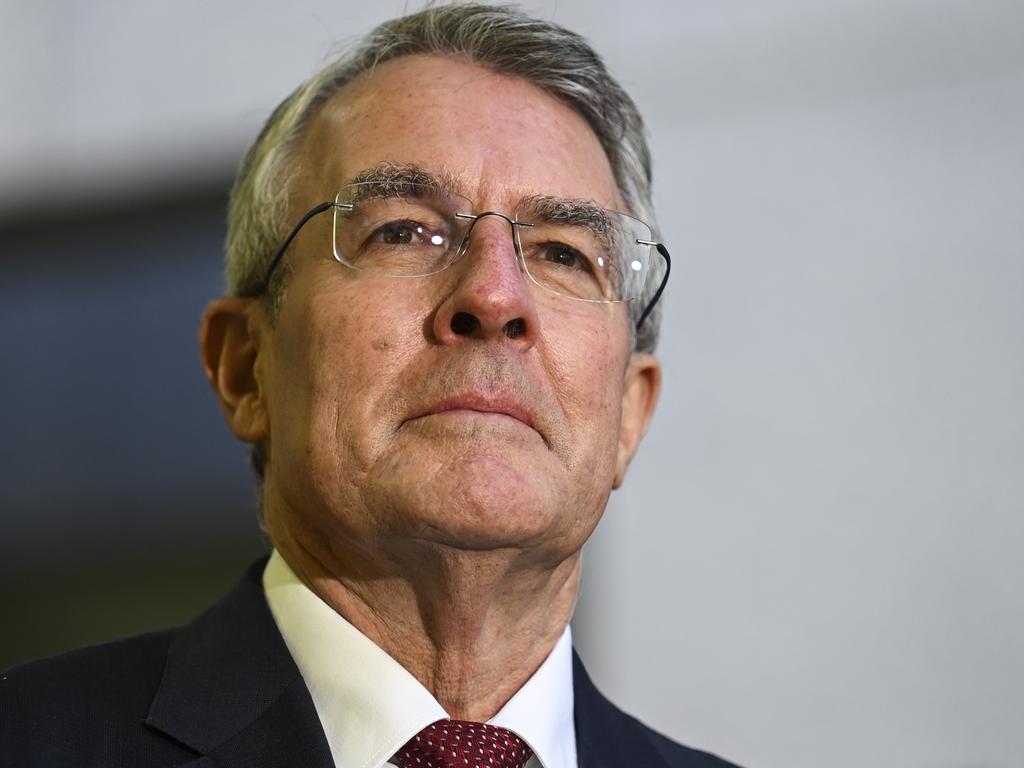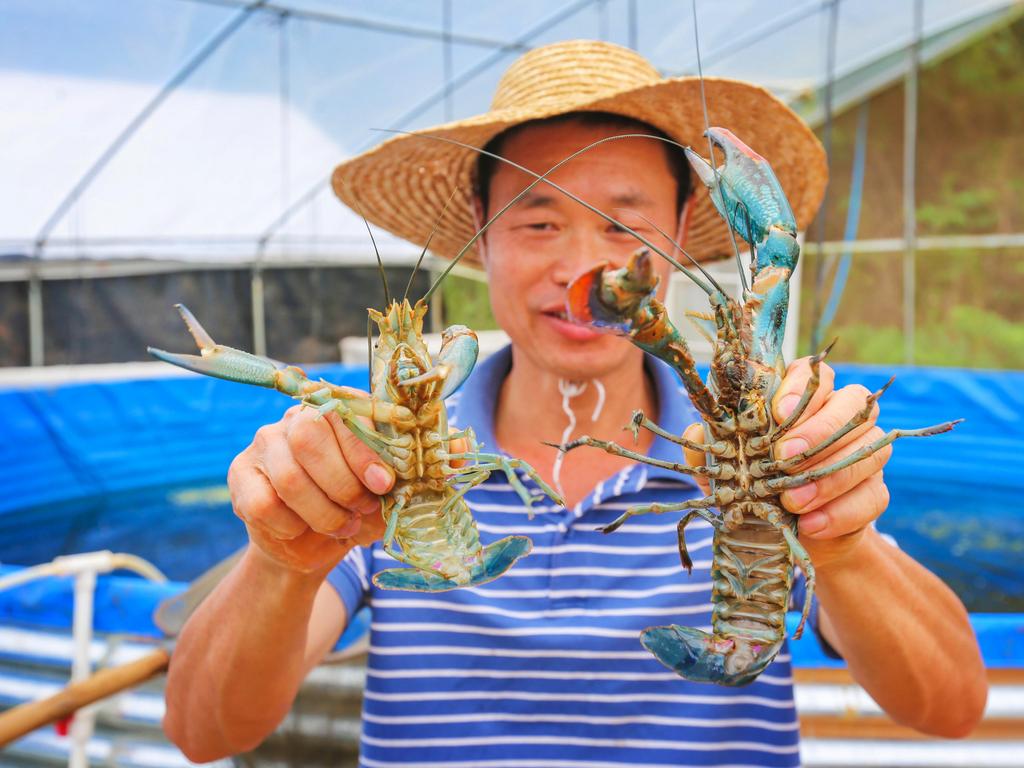Anthony Albanese visit to China on the table after Aussie timber ban lifted
Beijing’s top diplomat in Australia has revealed that talks are under way for the PM to visit China, amid improving trade relations.

Beijing’s top diplomat in Australia has revealed that talks are under way for Anthony Albanese to visit China “as quickly as possible”, amid improving trade relations between the countries after the lifting of punitive trade bans on $600m-a-year worth of Australian timber.
China’s ambassador to Australia Xiao Qian said there was “good momentum” in stabilising bilateral ties, and Chinese officials were working with their Australian counterparts to find “a time of mutual convenience” for the Prime Minister’s trip.
There has been growing speculation that Mr Albanese will visit Beijing in late October or early November to coincide with Gough Whitlam’s historic first visit to that country 50 years ago.
Despite having face-to-face talks with Xi Jinping on the sidelines of last year’s G20 summit in Bali, Mr Albanese has denied receiving an official invitation.
It’s understood he is reluctant to make the trip until trade issues between the countries are resolved and detained Australians Cheng Lei and Yang Hengjun are released.
The Australian Forest Products Association welcomed the end to the log ban, which was imposed in late 2020 after “forest pests” were allegedly detected by Chinese authorities in Australian timber shipments.
“China has been and will continue to be an important market for Australian timber and wood fibre export products,” chief executive Joel Fitzgibbon said.
“When the ban came into effect more than two years ago, it caused a great deal of upheaval and uncertainty for many timber exporters and the broader forest sector and this resolution is welcomed.”

Timber companies said, however, that they had already found different markets, and strong domestic demand meant there was a shortage of export logs.
“It opens up an opportunity to take it to another market, but there is not a massive volume,” Pentarch Forestry chief executive Paul Heubner said.
The end to the timber ban followed Trade Minister Don Farrell’s talks in Beijing last week with Chinese counterpart Wang Wentao aimed at resolving China’s $20bn worth of sanctions on Australian exports.
Mr Xiao said the trade issues were being dealt with “one by one”, and he hoped all could be resolved “as soon as possible”.
He said the two countries needed each other, and urged Australia to set up a joint working group to discuss China’s application to join the trans-Pacific trade agreement.
“In that working group, we can start talking about the standards, the differences, the common ground, where we can make some adjustments,” he said.

The 11-member Comprehensive and Progressive Agreement for Trans-Pacific Partnership imposes the highest standards of all global free-trade deals.
It requires high levels of transparency and intellectual property protection, and precludes giving state-owned enterprises advantages over private companies.
ANU associate professor Shiro Armstrong said the Chinese system would require significant reform to create a level playing field that did not favour its huge number of government-owned companies, and it was in Australia’s interests, and those of other CPTPP members, to set out the reforms China needed to make to help bring more transparency to the global economy.
Mr Wentao last week acknowledged concerns over China’s bid to join the CPTPP, and Australia and Japan remain sceptical about the application, given Beijing’s long history of market manipulation and economic coercion.
In a wide-ranging press conference, Mr Xiao expressed “my personal sympathy” for Ms Cheng, who is detained in China for alleged espionage offences, saying he was trying “to do my utmost” to let friends and family see her.

He was silent on Yang Hengjun, who is also accused of spying.
Mr Xiao also thanked Australian authorities for their efforts to search for survivors from a capsized Chinese fishing vessel in the Indian Ocean, and urged “more aircraft, more ships” be sent.
He said China was “not a threat” to Australia, and the government’s planned re-arming was “absolutely unnecessary”.
Mr Xiao said Australia’s pursuit of nuclear-powered submarines was “pretty risky” because it would set a “bad example” to other countries on the sharing of weapons’ grade nuclear material.







To join the conversation, please log in. Don't have an account? Register
Join the conversation, you are commenting as Logout